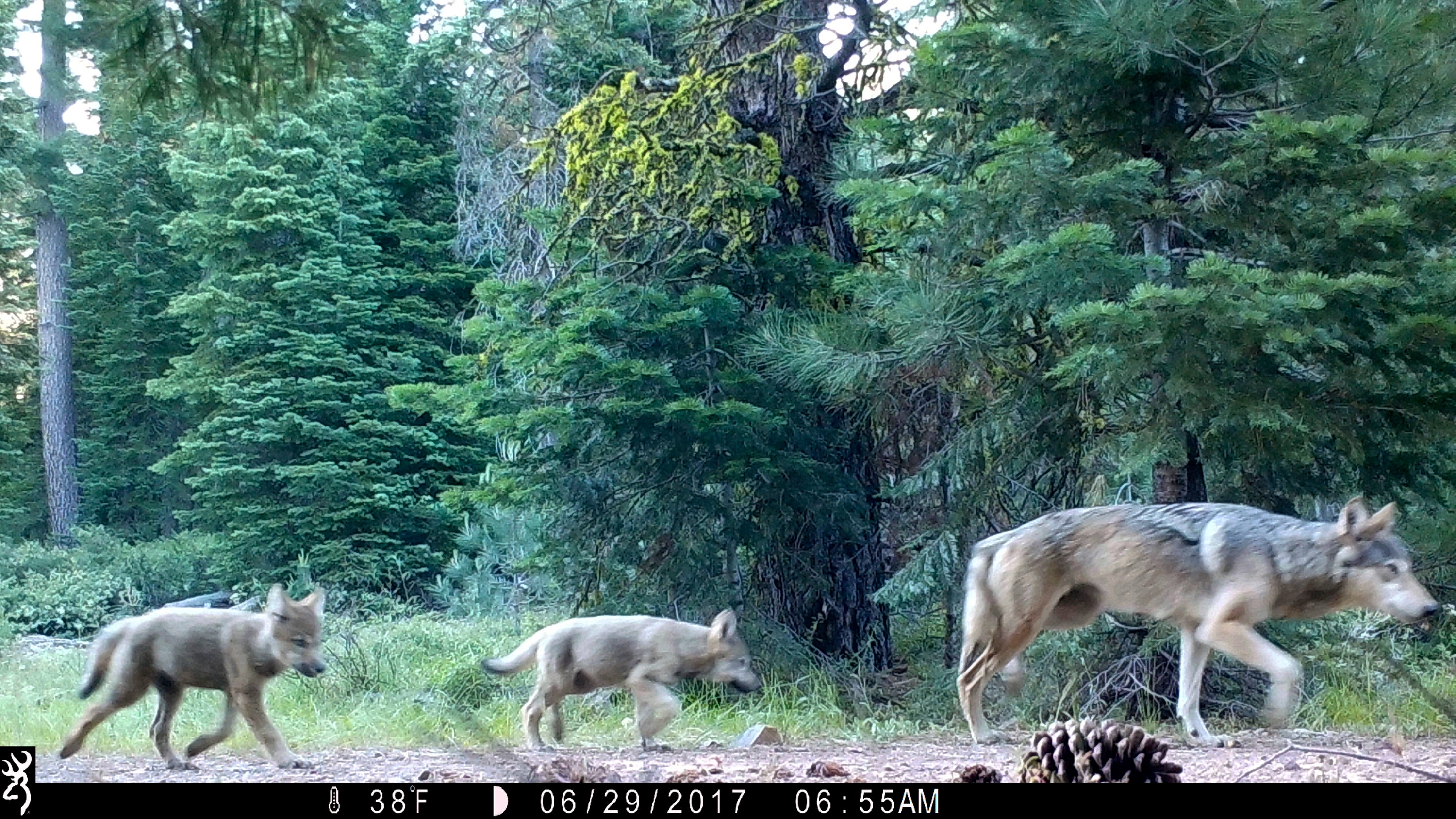The Biden administration is taking steps to eliminate protections for gray wolves
The Biden administration has asked an appeals court to revive a Trump-era rule that lifted remaining Endangered Species Act protections for gray wolves in the U.S. If successful, the move would put the predators under states’ oversight and would allow hunting in the Great Lakes region, which had been suspended by a court order

Your support helps us to tell the story
From reproductive rights to climate change to Big Tech, The Independent is on the ground when the story is developing. Whether it's investigating the financials of Elon Musk's pro-Trump PAC or producing our latest documentary, 'The A Word', which shines a light on the American women fighting for reproductive rights, we know how important it is to parse out the facts from the messaging.
At such a critical moment in US history, we need reporters on the ground. Your donation allows us to keep sending journalists to speak to both sides of the story.
The Independent is trusted by Americans across the entire political spectrum. And unlike many other quality news outlets, we choose not to lock Americans out of our reporting and analysis with paywalls. We believe quality journalism should be available to everyone, paid for by those who can afford it.
Your support makes all the difference.The Biden administration on Friday asked an appeals court to revive a Trump-era rule that lifted remaining Endangered Species Act protections for gray wolves in the U.S.
If successful, the move would put the predators under state oversight nationwide and open the door for hunting to resume in the Great Lakes region after it was halted two years ago under court order.
Environmentalists had successfully sued when protections for wolves were lifted in former President Donald Trump’s final days in office.
Friday’s filing with the 9th U.S. District Court of Appeals was President Joe Biden administration’s first explicit step to revive that rule. Protections will remain in place pending the court’s decision.
The court filing follows years of political acrimony as wolves have repopulated some areas of the western U.S., periodically attacking livestock and eating deer, elk and other big game. Environmental groups want that expansion to continue since wolves still occupy only a fraction of their historic range.
Attempts to lift or reduce protections for wolves date to the administration of President George W. Bush more than two decades ago.
They once roamed most of North America but were widely decimated by the mid-1900s in government-sponsored trapping and poisoning campaigns. Gray wolves were granted federal protections in 1974.
Each time the U.S. Fish and Wildlife Service declares them recovered, the agency is challenged in court. Wolves in different parts of the U.S. lost and regained protections multiple times in recent years.
Congress circumvented the courts in 2011 and stripped federal safeguards in the northern U.S. Rocky Mountains. Thousands of wolves have since been killed in Montana, Idaho and Wyoming.
Lawmakers have continued to press for state control in the western Great Lakes region. When those states gained jurisdiction over wolves briefly under the Trump rule, trappers and hunters using hounds blew past harvest goals in Wisconsin and killed almost twice as many as planned.
Michigan and Minnesota have previously held hunts but not in recent years.
Wolves are present but no public hunting is allowed in states including Washington, Oregon, California and Colorado. They’ve never been protected in Alaska, where tens of thousands of the animals roam.
The Biden administration last year rejected requests from conservation groups to restore protections for gray wolves across the northern Rockies. That decision, too, has been challenged.
State lawmakers in that region, which includes Yellowstone National Park and vast areas of wilderness, are intent on culling more wolf packs. But federal officials determined the predators were not in danger of being wiped out entirely under the states’ loosened hunting rules.
The U.S. also is home to small, struggling populations of red wolves in the mid-Atlantic region and Mexican wolves in the Southwest. Those populations are both protected as endangered.